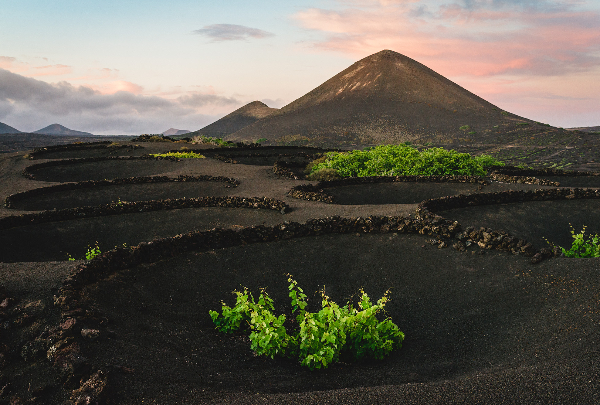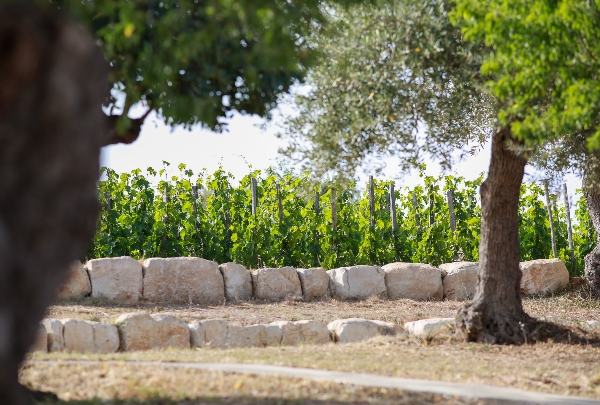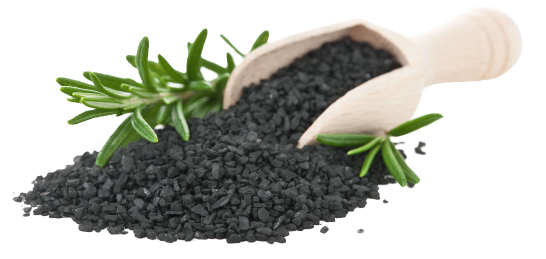Interview
Fernando Mora: "The term volcanic wines should not confuse us. There is an incredible diversity among them".

The Aragonese Master of Wine emphasises the uniqueness of the wines we usually call volcanic and the need to personalise our knowledge of them.
Volcanic soils are unique and give rise to unique products. Flavoursome vegetables, sweeter fruits or legumes with very thin skins are examples of this, as well as one of the most renowned oenogastronomic values of volcanic areas: their wines. We spoke to Fernando Mora, Master of Wine and owner of the Aragonese winery Frontonio, who will be at Worldcanic to offer a tasting of volcanic wines, with the aim of shaking people's consciences about the need to get rid of the 'volcanic wine' label, because "there are many more volcanic wines than we think, and their diversity is brutal," he warned.
He will demonstrate this at Wordlcanic with a tasting of a wine from Campania in Italy, a Pinot Noir from the Yarra Valley in Australia, an American Chardonnay from Oregon and two wines from the Canary Islands, Tenerife and the island of Lanzarote itself, the host of the congress. Very different wines that break with "the preconception that volcanic wines are island wines". There are, like here in Lanzarote or in Sicily, but there are many other volcanic soils - some older, some newer - in areas that are not on the coast," explained Mora.
This diversity was the central theme of the conversation with the oenologist, who insisted that volcanic wines can be as different as any other wine. "There are many volcanic soils and therefore it is not always the same elements that make volcanic soils favourable to viticulture, some have a great capacity for water retention, others the opposite, and so on. By calling them volcanic wines as a whole, an attempt has been made to create a label that encompasses them all, but in reality it is much more complex," he said.
That is why we find many grape varieties in vineyards with volcanic soils. From very local and unique varieties in more remote places, such as the Canary Islands or Mount Etna, to more well-known or international varieties such as Chardonnay or Pinot Noir, which have adapted very well to volcanic soils in the Yarra Valley (Australia), or in the case of Cabernet Sauvignon in Napa Valley (USA)," he said. Fernando Mora explains that it is precisely this diversity of grape varieties that allows us to find "white, red, rosé and even sweet wines in some areas".
As a result, it is very difficult to define the typical flavour profile of a volcanic wine because, as Mora explained, there is no clear profile. "To simplify a lot, we could say that in general the vast majority of these wines have a slightly reductive mineral profile, which we could define as a point of flint", although Fernando insisted on relativising and always looking at each case on a case-by-case basis. In fact, this is something that prevails in all viticulture.
One of the greatest pleasures for a wine lover is to discover, wine by wine, all the peculiarities and nuances hidden within them. For this reason, Fernando Mora advocates exploring and getting to know all the possibilities that exist in so-called volcanic wines. "There are many wine regions that produce volcanic wines. Among the best known are those at the foot of Mount Etna or Mount Vesuvius in Italy; or even our Canary Islands, where we have the special case of Lanzarote, a very small island but with a great diversity of soils that offer a wide range of wines. But also others with soils that we sometimes don't recognise as volcanic, such as Oregon and Napa in the United States, the Yarra Valley in Australia, or even in Europe, the French Languedoc or Hungary," he explained.
And when it comes to pairing the wines we discover, the oenologist reveals his secret: "What always works for me is geographical pairing. There is nothing better than pairing a wine with a local dish. Anything that is geographically local seems very interesting to me". This is especially true of volcanic wines, because, as Fernando Mora himself acknowledges, "volcanic areas have the peculiarity of being, in many cases, very beautiful areas with unique gastronomy. A great advantage for wine tourism". So take note for your next holiday.


.jpg)








